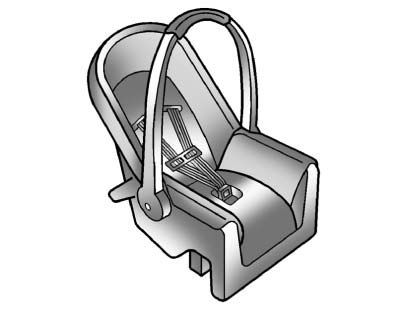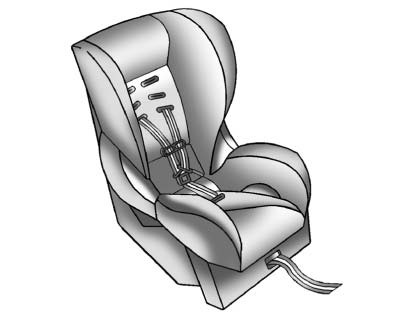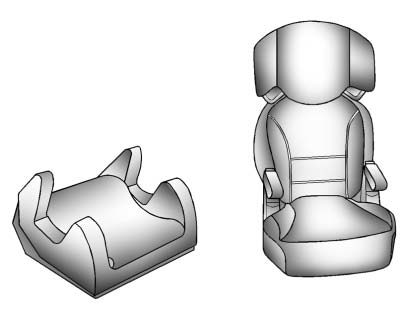Child Restraint Systems
 (A) Rear-Facing Infant Seat
(A) Rear-Facing Infant Seat
A rear-facing infant seat (A) provides restraint with the seating surface against the back of the infant.
The harness system holds the infant in place and, in a crash, acts to keep the infant positioned in the restraint.
 (B) Forward-Facing Child Se
(B) Forward-Facing Child Se
A forward-facing child seat (B) provides restraint for the child's body with the harness.
 (C) Booster Seats
(C) Booster Seats
A booster seat (C) is a child restraint designed to improve the fit of the vehicle's safety belt system.
A booster seat can also help a child to see out the window.
See also:
Fuel
Use of the recommended fuel is an important part of the proper maintenance of this vehicle. To help keep the engine clean and maintain optimum vehicle performance, we recommend the use of gasoline adv ...
Display Settings
Press the Config button on the
Home Page or the CONFIG button
on the faceplate, then select Display
Settings from the list.
The following options may display:
Dimming Mode: Press to change
t ...
Defensive Driving
Defensive driving means “always expect the unexpected.” The first step in driving defensively is to wear the safety belt. See Safety Belts
.
WARNING
Assume that other road users (pedestrian ...


